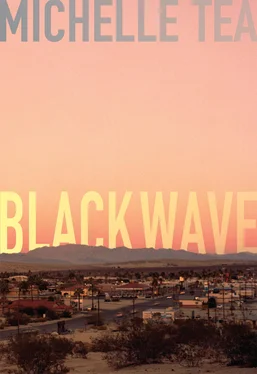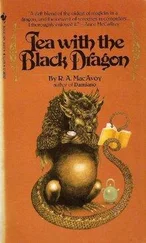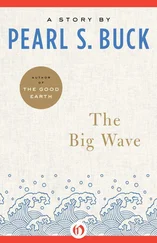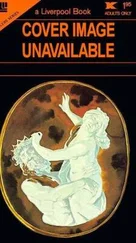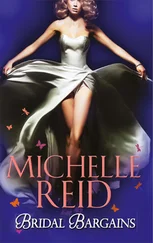
Michelle wasn’t sure when everyone started hanging out at the Albion. She had managed to pass the corner dive for years without going inside, simply noting the dank, flat-beer stink wafting from its open doors, catching the glow of the neon sign hung above the bar — SERVICE FOR THE SICK — in hot, red loops. It seemed that all the other dives had been purchased and repurposed, renovated and sold to a different clientele. The purple-lit bar where middle-aged, working-class bulldaggers nursed beers at the counter was, overnight, converted into a heterosexual martini bar where men who smoked actual cigars drank chocolate martinis and harassed the women who passed by on Valencia. It was 1999.
Aside from the neon sign glowing its sinister pronouncement, the Albion’s other notable fixture was Fernando, a man who wore a mullet and a leather vest and carried a brown paper bag, the sort a mother will pack her child’s lunch in. It contained cocaine heavily cut with baby laxative. Michelle and her friends would pool their resources and walk into the women’s restroom with Fernando, who would tear a page from the stack of Cosmopolitan and Glamour in the corner, origami it into a little envelope, and dip it into his sack of drugs. The rumor on Fernando was that he used to work for the government, the FBI or the CIA, and was so hooked up with the most corrupt corners of the system that he was immune from being busted. Everyone felt very safe buying drugs from Fernando in the women’s restroom at the Albion.
Oh, Valencia, Michelle mourned. Michelle was a poet, a writer, the author of a small book published by a small press that revealed family secrets, exposed her love life, and glamorized her recreational drug intake. Her love life and recreational drug intake had been performed up and down Valencia Street, the main drag of San Francisco’s Mission neighborhood, once Irish, then Mexican, later invaded by a tribe bound not by ethnicity but by other things — desire, art, sex, poverty, politics. For six years Michelle had lived adjacent to this particular strip of gentrification and resistance, of commerce and SRO hotels and boutiques and taquerias. And, of late, it had changed. The Chameleon, a bar hung with velvet clown paintings, where Michelle had read her first poem to an audience, was no more. The poem had been awful, a melancholy love poem delivered in poetry voice, that stilted, up-toned lilt. She had compared her lover to a desert and her heart to a piece of cactus fruit busted up on the dusty ground. She had feared the poem was bad but rationalized that bad art had its fans and that her shabby offering would find its people. And at the close of the open mic a meek young lesbian had brought her shaved head over to Michelle and shyly thanked her.
Michelle had a special place in her heart for the Chameleon, its stage painted sloppily with giant orange flames. Its poetry event was famously unruly — all the poets were alcoholics, slamming each other in the head with chairs like professional wrestlers. That bar was Michelle’s first home in San Francisco, when she moved there from New England. She had enjoyed playing the part of the quick-witted and enraged baby dyke, she loved to clamber up to the microphone and holler at the drunks to Shut The Fuck Up! before launching into a spoken-word diatribe against pornography and child molestation. She did it well enough that the drunks stayed quiet, gave her a grudging respect afterward. When she bound her rants into xeroxed manifestos they bought them, and Michelle traded their damp dollars at the bar for pints of beer. The Chameleon was its own ecosystem, but the owner had fallen into a crack habit and so the business went under. Some French people bought it and renamed it Amnesia, as if Michelle would forget. It was so perfect it was cruel, the new name. Amnesia. Michelle marveled at it.
It seemed to be sweeping the Mission, amnesia. Every time Michelle blinked a familiar place had shimmered into an alien establishment. The Casanova had retained its name but gotten a new crowd, people Michelle had never before seen in her neighborhood. They looked like they had jobs, and money. Restaurants she could not afford to eat in were luring people from other enclaves, people once too frightened to visit the Mission, where people sold drugs and shot at one another with guns. These new arrivals wore clothing that had never been worn by anyone but them, clothing they would tire of and donate to the Salvation Army, where Michelle would buy it and wear it on this very street a year from now. There was a chain here, a cycle, Michelle could sense its churn. Anyway, the Mexican families who had been there forever had watched Michelle and her scrappy ilk invade the streets years earlier, artists and queers, damaged white people bringing dumpy coffee shops and these poetry bars. Why did she think her world wasn’t supposed to change?
Michelle pondered the question of her changing neighborhood in the darkness of the Albion, the last dive standing. A place where a cockroach once lost its grip on the ceiling and tumbled onto her notebook. A place where her checkbook was once stolen by a crackhead. Her black army bag had been slung over the back of her chair and the man was sitting behind her. Michelle had seen him and noted the scrawniness of his physique, the bug of his eyes, his cheekbones like broken glass threatening to slice through the skin of his face. Michelle played it cool. The Albion was the kind of place where one fraternized with crackheads. Go get a fucking appletini at Blondie’s if you can’t handle it, yuppie. Michelle could handle it. She gave the crackhead a nod of camaraderie — weren’t they both high on the same substance, after all? Michelle, a white girl, took her cocaine heavily cut with the aforementioned baby laxative in an inhalable line. This gentleman, African American, bought his in the smokable rock configuration. Michelle knew there were currently people in academia writing papers about this. If the man had hung around any longer she might have even bought him a beer, depending on the bonhomie quality of that evening’s cocaine, but the gentleman dipped his trembling hand into Michelle’s bag, snatched her checkbook, and took off before the bartender kicked him out. The Albion did not officially condone crack smoking. They would eighty-six you for firing your pipe in the bathroom, yet the bar had a resident cocaine salesman and people brazenly cut lines atop the glass of the pinball machine. Michelle did not condone this hypocrisy. Total bullshit.
Michelle had smoked crack cocaine only once and did not find it enjoyable.
She and her friends had been playing pool at the lesbian bar when a man with a tear tattooed beneath his eye wandered in. The man had been in prison for many years, last time he’d been free the lesbian bar had been a Mexican bar. He was confused but thirsty, and so he purchased a beer and played a game of pool with Ziggy and Stitch. Ziggy’s hair was orange as a traffic cone. She was an ex-junkie medicating her addiction with uppers and booze. She was a poet who enjoyed yelling her verse and a cook employed by the finer restaurants in San Francisco. When Ziggy got drunk her spatial cognition tanked and her lips got very wet. She would corner you in an intense conversation, keeping you pinned with her sharp green eyes, licking her lips. Michelle was into it, she loved intense conversations and getting drunk made the whole world feel severe and profound, teeming with wonder and pain. She enjoyed the company of others who could feel it — drunks and poets, mainly.
Читать дальше
